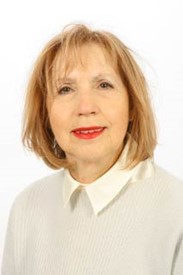Social Gerontology
Alma Mater Europaea - ECM offers an innovative master's program for preparing students to handle issues facing an aging population. The emphasis of the master’s degree program in Social Gerontology is on advanced understanding the process of aging from an intergenerational symbiosis perspective.
The Alma Mater Europaea master's program in Social Gerontology positions graduates to pursue their passion for policy and research while studying the mechanics and mysteries of longevity, aging and population health. The Social Gerontology master's program prepares graduates to become leaders who effect policy changes at the local and national levels alike, while applying their knowledge in an array of industries.
This flagship master's program provides students with a comprehensive education in gerontology and policy. The program is designed to provide systematic advanced education in gerontology for those planning to enter professions related to higher education, social services, health services, government, or business.
Academic excellence. Innovative programs. Real-world connections. First-class educational experience. Impact your career. Study in the heart of Europe.
Courses
SOCIAL GERONTOLOGY CURRICULUM
| Course | ECTS | ||
|---|---|---|---|
| Total per year | 60 | ||
| Total per study program | 120 | ||
| 1. year | |||
| 1 | Operational methodology in Social gerontology (qulitative and quantitve methods; methodological seminar) | A | 10 |
| 2 | Elderly and society or Sociologial aspects of aging |
C | 10 |
| 3 | Geronological networking organization systems and international comparison | B | 10 |
| 4 | Organization – quality and excellence | A | 10 |
| 5 | Elderly and thought processes in old age or Psychology and filosophy of health |
C | 10 |
| 6 | Master thesis seminar (scientific writing) | B | 10 |
A: mandatory theoretical and methodological course
B: professionaly oriented courses
C: elective course from the Social Gerontology program
D: elective course from other Alma Mater Europaea ECM programs
MANDATORY AND ELECTIVE COURSES
| Course (students must gather 30 ECTS) | ECTS | ||
|---|---|---|---|
| Total per year | 60 | ||
| Total per study program | 120 | ||
| 2. year | |||
| 1 | Communication and counseling in Social gerontology | C | 10 |
| 2 | Health and medical assistance economics | C | 10 |
| 3 | Secure old age economical aspects | C | 10 |
| 4 | Elderly population social politics | C | 10 |
| 5 | Gerontology as a field of research | C | 10 |
| 6 | Behavioral old age aspects | C | 10 |
| 7 | Long term care | C | 10 |
| 8 | Creative types of team work | D | 10 |
| 9 | Diversity in aging | C | 10 |
| 10 | Old age and retirement issues | C | 10 |
| 11 | Aging and communal care | C | 10 |
| 12 | Palliative assistance | C | 10 |
| 13 | Own old age organizational form | C | 10 |
| 14 | New forms of elderly assistance | C | 10 |
| 15 | Anthropology and trend identification | D | 10 |
| 16 | Designing in gerontology | C | 10 |
| 17 | Leisure time management | D | 10 |
| Total | 30 | ||
| 18 | Master thesis | A | 30 |
A: mandatory theoretical and methodological course
B: professionaly oriented courses
C: elective course from the Social Gerontology program
D: elective course from other Alma Mater Europaea ECM programs
Faculty

Programs:
Graduate: Archives and Records Management, Business Management , Environmental Studies, European Business Studies, Health Sciences, Social Gerontology
Graduate: Archival Sciences, Physiotherapy, Project Management, Social Gerontology
CV:
Bibliography: Read more
Professor Dr. Majda Bastič is a distinguished academic specializing in Operations Research and Research Methodology. She serves as Professor in the Department of Quantitative Economic Analysis at Alma Mater Europaea. Her extensive career encompasses teaching, research, and significant contributions to academic leadership, reflecting her dedication to advancing the fields of operations research and sustainable development.
Academic and Professional Background:
Dr. Bastič earned her Ph.D. in Economics from the University of Zagreb in 1987. Her research focuses on applying quantitative methods in innovation management, particularly regarding sustainable development. She has developed measurement scales for eco-quality in services and products, which have significantly contributed to advancing sustainable practices across various industries. Her scholarly work has been published in numerous international journals and presented at scientific conferences worldwide, highlighting her influence and expertise in the field.
Teaching and Mentorship:
Throughout her tenure, Dr. Bastič has taught courses in Operations Research, Operations Management, and Research Methodology at both undergraduate and postgraduate levels. She has supervised numerous students, providing guidance in their academic and research pursuits. Her commitment to education is evident in her development of curricula and teaching materials that seamlessly integrate theoretical knowledge with practical applications, ensuring a rich learning experience for her students.
Editorial and Leadership Roles:
Dr. Bastič has held several prominent positions within academic institutions. She served as the Vice Dean for Part-Time Studies at the Faculty of Economics and Business, contributing to the university's academic leadership. Additionally, she has been the Editor-in-Chief of recognized journals, overseeing contributions to academic discourse. Her involvement extends to editorial boards of international conferences and serving as a reviewer for various scientific journals, showcasing her commitment to maintaining high standards in research and publication.
Research Interests:
Dr. Bastič's research interests encompass developing and applying methodologies that support the creation of new products contributing to environmental quality and sustainable development. She has explored factors influencing the innovative capabilities of companies, particularly focusing on Slovenian enterprises. Her interdisciplinary approach has also facilitated collaborative research in sectors such as tourism and transportation, furthering her impact on sustainable development practices.
Advantages
Alma Mater Europaea is committed to providing students with a broad theoretical understanding of lifespan development. Master’s-level students will take a wide variety of courses and work closely with faculty to enable them to sharpen their critical thinking and analytical skills, and acquire an in-depth knowledge of aging.
The graduate degree in Social Gerontology will provide education for those interested in the area of policy, theory and its applications, health and aging, community services, program development, and biostatistical evaluation. Students will gain a better understanding of the roles of older people and their contributions to society. The program will also prepare students for entry to doctoral level education.
All Alma Mater Europaea - ECM lectures are filmed and e-learning supported. You can watch them in live stream and re-run them at home as many times as you like.
Grants & Partnerships
Employability
With your degree, you may seek immediate employment in health care, academia, research, government or policy. A master's degree in gerontology qualifies you for a career working directly with older people or indirectly for their benefit.
Specific job titles depend upon the industry in which you work. Some gerontologists become researchers and study mental and physical aging processes and how they affect populations. Others work in policy to amend laws and regulations that affect older people. If you work in industry or government, you may be involved in designing new products to meet specific needs of the elderly.
Common employers include community organizations, retirement communities, non-profit agencies, social services, clinics, hospitals, research facilities, hospices, government agencies and home health care facilities. Alternatively, you may start your own consulting business and advise other health care agencies and businesses on the best products and services for older adults.

